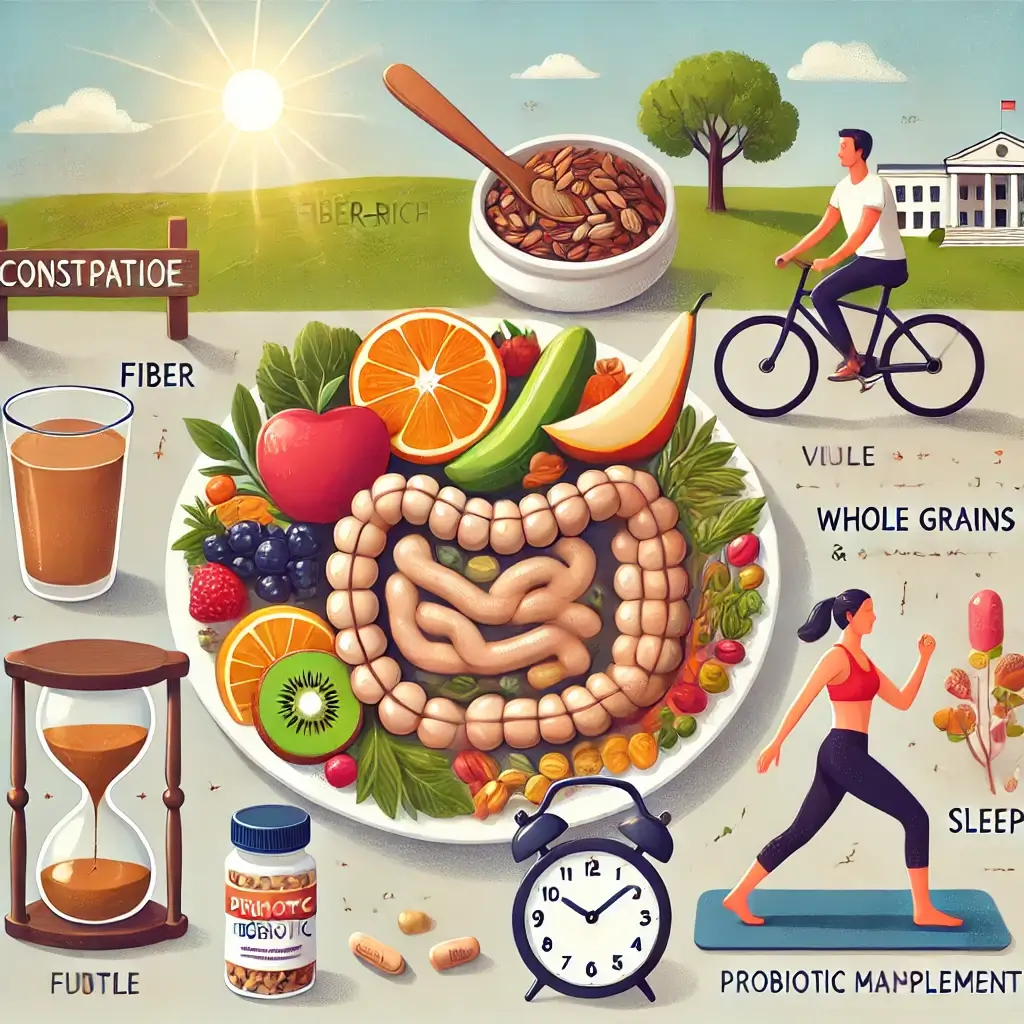Understanding Constipation and Its Impact
infrequent or difficult bowel movements is a common but often underestimated digestive issue that affects millions of individuals worldwide. While occasional bouts of constipation are normal and can resolve on their own, chronic constipation can lead to significant discomfort and complications, such as hemorrhoids or fecal impaction. This condition often stems from a combination of factors, including poor dietary choices and sedentary lifestyles, stress, and dehydration.
The Importance of Digestive Health
A healthy digestive system plays a vital role in overall well-being, influencing energy levels, mood, and even immune function. Addressing constipation proactively through natural measures can help prevent its onset and ensure regular bowel movements. This article explores evidence-based strategies to prevent constipation, including dietary modifications, lifestyle adjustments, and additional remedies to maintain optimal digestive health.
Evidence-Based Strategies to Prevent Constipation
Evidence-Based Strategies to Prevent Constipation
The Role of Dietary Modifications
Dietary Modifications
The Importance of Fiber
Fiber is essential for regular bowel movements as it adds bulk to stool and promotes peristalsis. A 2016 systematic review in Alimentary Pharmacology & Therapeutics found that increasing fiber intake significantly improved constipation symptoms and overall quality of life. Aim for 25–35 grams of fiber daily, sourced from fruits, vegetables, legumes, and whole grains. Introduce fiber gradually to avoid bloating and gas.
Hydration’s Critical Role
Adequate hydration softens stool, making it easier to pass. A 2019 study in Nutrients emphasized the importance of drinking at least eight glasses of water daily or more, depending on physical activity and climate. Dehydration can exacerbate constipation by slowing intestinal transit.
The Impact of Diet Choices
Diets high in processed foods and added sugars disrupt gut microbiota, contributing to constipation. A 2017 study in Nature linked high-sugar diets to gut dysbiosis, which can impair digestive function. Replace these with whole foods for better gut health.
Essential Lifestyle Changes
Lifestyle Adjustments
The Benefits of Exercise
Physical activity stimulates gut motility, reducing the risk of constipation. A 2018 review in the World Journal of Gastroenterology highlighted that at least 30 minutes of moderate exercise daily, such as walking or cycling, can improve bowel regularity.
Listening to Your Body
Ignoring the urge to defecate can lead to chronic constipation. Establish a routine to allow enough time for bowel movements, ideally after meals when the gastrocolic reflex is strongest.
Managing Stress for Better Digestive Health
Stress directly impacts gut motility, contributing to constipation. A 2015 study in Gut found that chronic stress disrupts the balance of gut hormones and slows intestinal transit. Relaxation techniques like deep breathing and meditation can alleviate these effects.
The Connection Between Sleep and Digestion
Sleep deprivation disrupts gut hormonal rhythms, increasing the risk of constipation. Aim for 7–8 hours of quality sleep each night to support a healthy digestive system.
Natural Solutions and Remedies
Additional Remedies
Understanding Probiotics
Probiotics are live bacteria that can restore gut microbiota balance. A 2014 study in The American Journal of Gastroenterology concluded that certain strains of probiotics improve bowel movement frequency and stool consistency in individuals with constipation. Consult a healthcare provider before introducing supplements.
The Role of Pelvic Floor Exercises
Strengthening pelvic muscles can facilitate bowel movements, especially for those with pelvic floor dysfunction. Guidance from a healthcare professional can ensure proper technique and effectiveness.
Key Takeaways
Constipation can disrupt daily life, but proactive measures can prevent its occurrence and improve overall digestive health. Incorporating fiber-rich foods and staying hydrated, engaging in regular physical activity, and managing stress are cornerstone strategies for maintaining regular bowel movements. Probiotics and pelvic floor exercises can serve as additional tools for individuals seeking natural remedies.
When to Seek Professional Help
Chronic constipation or symptoms such as severe pain or blood in the stool should prompt a visit to a healthcare provider, as these may indicate underlying medical conditions. By taking a holistic approach to digestive health, you can enjoy a more comfortable, balanced lifestyle free from the discomfort of constipation.
Research Sources
References
Chey, W. D., et al. (2016). Fiber for constipation: Effect on constipation symptoms and quality of life. Alimentary Pharmacology & Therapeutics, 44(11), 1421–1431. Link
Li, Z., et al. (2019). Gut microbiota, fiber intake, and constipation. Nutrients, 11(7), 1709. Link
Sonnenburg, E. L., & Bäckhed, F. (2017). Diet-microbiota interactions as moderators of human metabolism. Nature. Link
Probiotics for Constipation. (2014). The American Journal of Gastroenterology. Link
